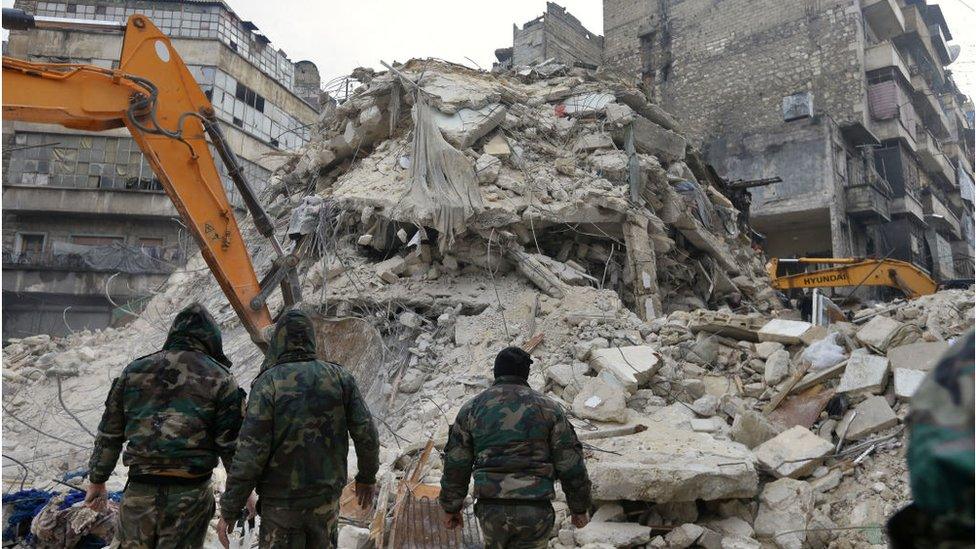Turkey earthquake: The false images shared online
- Published
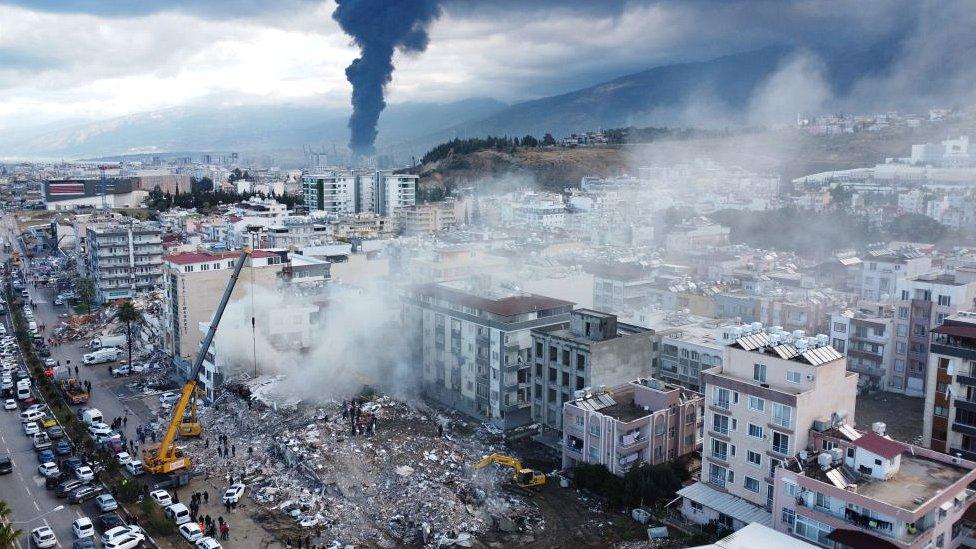
Smoke billowing from damaged buildings in the Turkish port of Iskenderun
Within hours of the earthquake that struck Turkey and Syria, false and misleading content began circulating online.
Pictures and video from previous disasters in other countries were shared by people with claims that they showed damage caused by Monday's tremors.
We've looked at some of the most viral examples.
Nuclear plant
One tweet - from a verified Twitter user - claimed to show a nuclear plant exploding, due to the earthquake in Turkey.
The video got more than 1.2 million views.
The tweet also said "Not confirmed, is this real?".
It wasn't a real image of a Turkish nuclear plant exploding.
Running the images through a search engine to see if they had appeared online before, revealed that they were actually from the aftermath of the Beirut explosion in August 2020, which resulted in the deaths of at least 200 people.
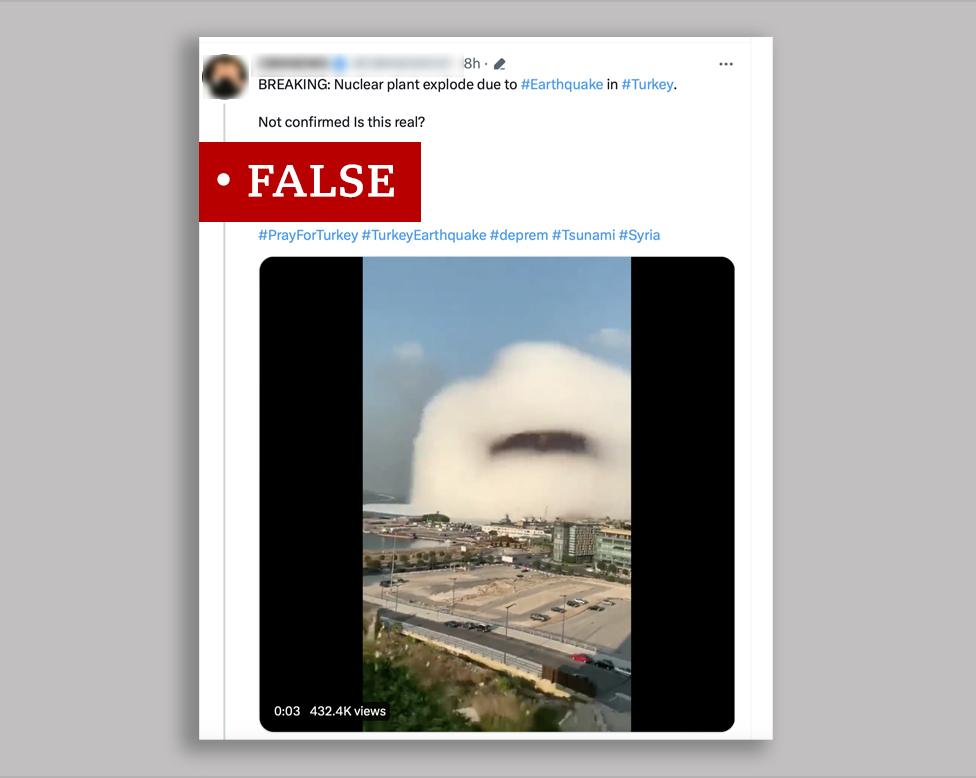
Twitter later added a note underneath the tweet, clarifying its actual origin.
Building collapse
In the early hours of Monday, a video claiming to show a building collapse in Turkey was shared online, racking up more than a million views on Twitter.
However, a search of key frames from this video on Google revealed the clip actually shows the deadly Surfside condominium collapse in Florida in June 2021, footage of which was widely shared at the time.
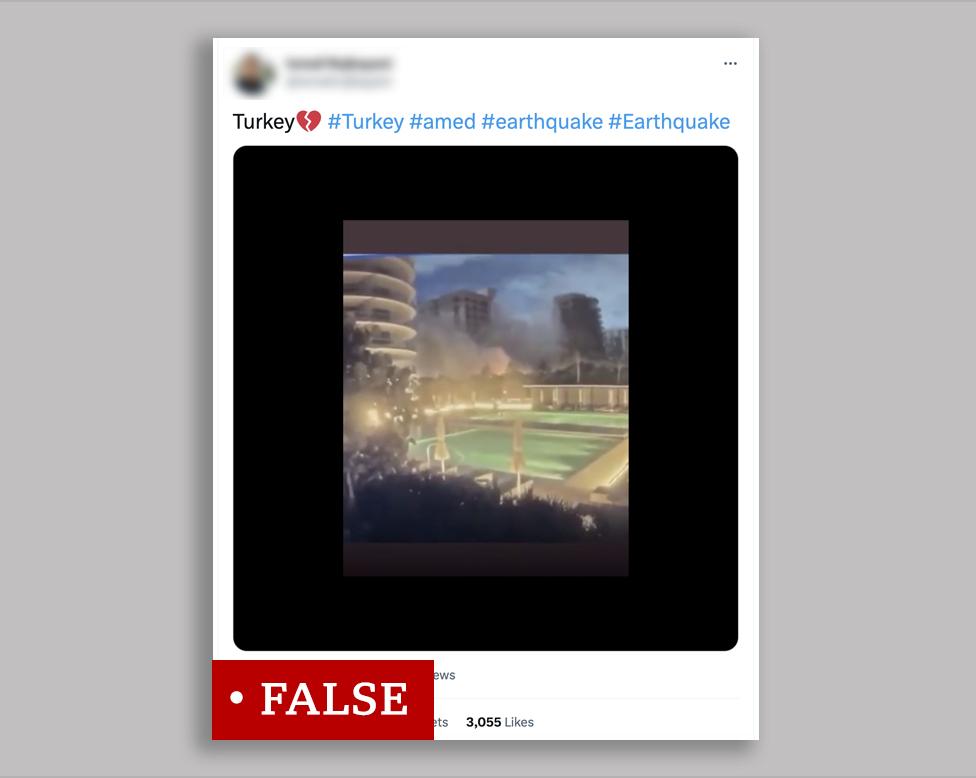
Tsunami hitting the coast
British-Iranian comedian Omid Djalili shared a video on his Twitter account of what he claimed was a "tsunami after the earthquake hit the coast of Turkey". It has been viewed nearly 300,000 times.
The video shows a huge wave washing away buildings next to a beach, as people run for their lives.
But, again, taking screenshots of the footage and searching for them on the internet revealed the clip actually dates back to September 2018 and was from Indonesia.
It showed the aftermath of a 7.5-magnitude quake which struck off the island of Sulawesi, setting off a tsunami that damaged the coastal city of Palu.
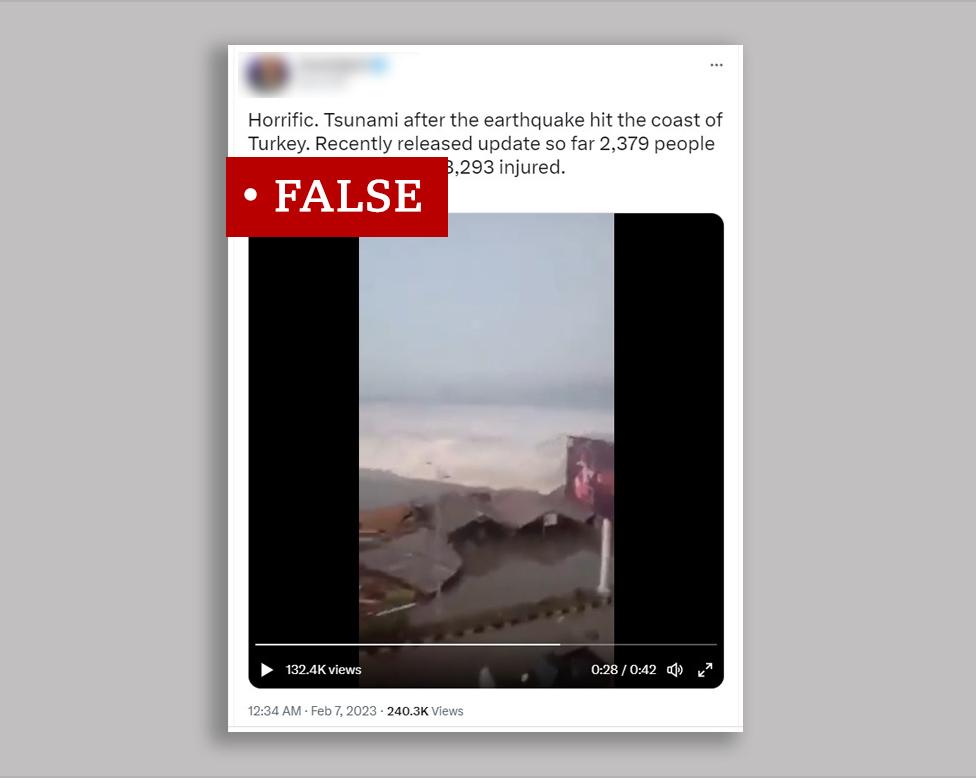
After people pointed this out to him, Mr Djalili tweeted again to say, "I understand this was NOT Turkey yesterday ...tweeted emotionally late night from usually reliable sources."
Scaffolding collapse
A different post on Twitter showed a video with scaffolding from a high-rise building falling to the ground.
The tweet falsely claimed that this was caused by the earthquake in Turkey and was shared across multiple platforms and garnered hundreds of thousands of views.
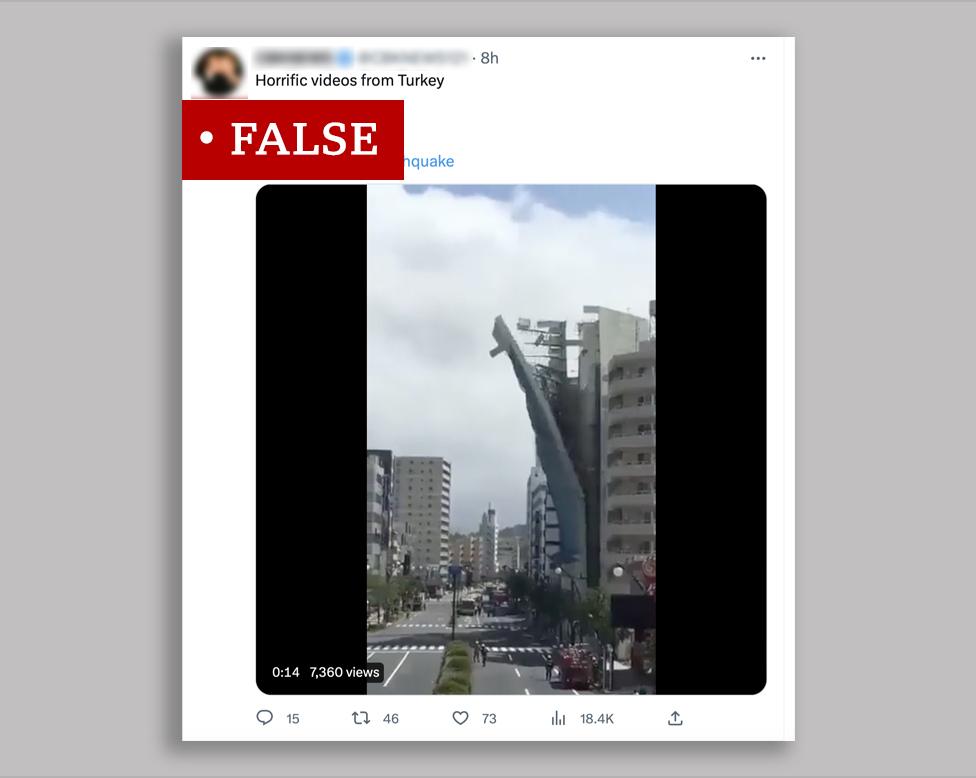
This video was in fact from an incident in Japan in 2016.
It was posted by the same user who posted the Beirut blast pictures.
Dog image
An image of a dog lying on top of rubble, with its paw next to a hand sticking out of the debris, was shared in the aftermath of the quake, accompanied with the caption "heartbreaking photo of the day" and a Turkey hashtag.
The image has been viewed more than 1.4 million times so far.

But a reverse image search using the freely-available Google Lens technology leads to the exact same photo on a stock image website, captioned "Dog looking for injured people in ruins after earthquake".
The website says the image was taken on 18 October 2018, proving it has no link to the earthquake this week., external
Reporting by Shayan Sardarizadeh, Merlyn Thomas and Adam Robinson
Related topics
- Published10 February 2023
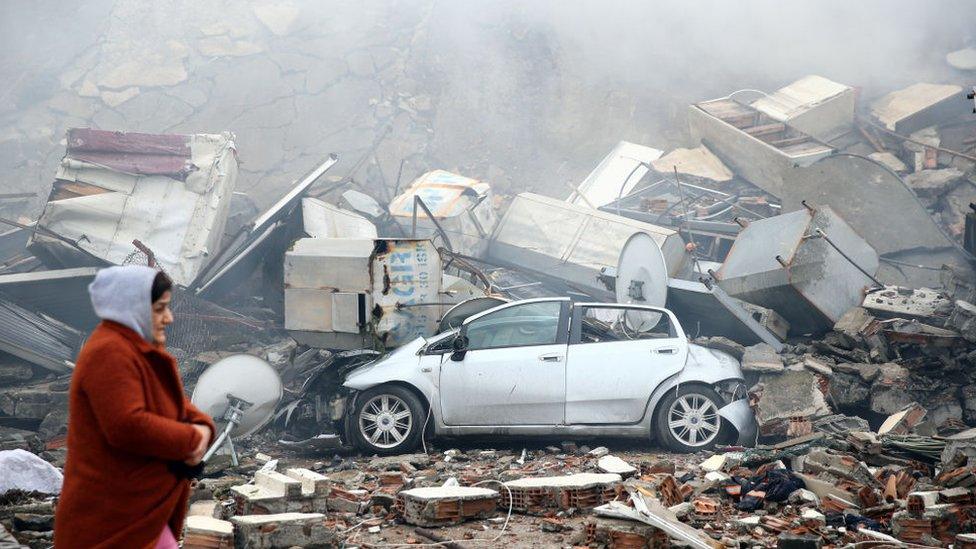
- Published7 February 2023
